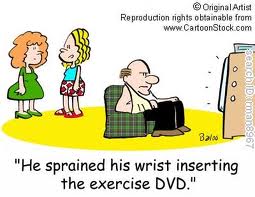It looks like I'm not the only one who wrote about the study published earlier this month in the Archives of Internal Medicine about inappropriate colonoscopies. And I'm not the only one who wrote about the JAMA study about cardiologists performing unnecessary angioplasties and placing stents just a bit too frequently. It turns out that Newsweek put out a cover story regarding these two recent articles and more, attesting to the lack of benefit demonstrated by much of the advice we dispense daily.
What's really intriguing are the comments at the bottom of the page. Many of those who wrote in support continued screening because that's how they found their cancer earlier than they would have otherwise. So I'm glad for them. But they neglect to understand that most who were screened received no benefit and in fact, some were actually harmed from follow up procedures.
On the other hand, I can certainly empathize with the physicians who wrote in about over-testing to ward off the malpractice attorneys. Yet other physicians admit to over-prescribing antibiotics because that's what patients really want, even after a 15 minute dissertation about the lack of benefit and actual possibility of harm.
So where does this leave those of us in the trenches vs what's promulgated from on high in the ivory towers? Having made grand pronouncements from on yonder during an earlier time in my career, I now see things from a different light along w/my colleagues. But that fact is that both sides have good points to make. Too often we perform procedures unnecessarily. Too often we perform tests that haven't been proven to have an outcome benefit, just one of improving a physiologic marker.
But in this day & age of quantity over quality, where we need to see more & more patients to meet our ever increasing overhead, too often we cave in to a request for antibiotics for something we suspect is most likely viral in nature because our patients want a pill now rather than to wait a few more days for the disease to take its course. Just like they want to gain muscle, lose fat, and have a longer, larger erection, all from some magic pill rather than regular exercise & good nutrition.
So maybe the answer isn't to just say no to unnecessary screening & procedures but to also say no to unnecessary antibiotics. In other words, patients need to stop pressuring us to prescribe the latest & greatest drugs they've just seen advertised on the television. And for that matter, unnecessary anti-hypertensives, hypoglycemics, and cholesterol lowering agents if we/they can just say no to bad food choices and physical inactivity.















































